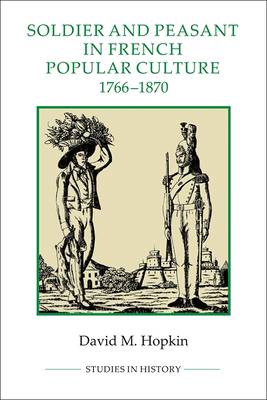
- Afhalen na 1 uur in een winkel met voorraad
- Gratis thuislevering in België vanaf € 30
- Ruim aanbod met 7 miljoen producten
- Afhalen na 1 uur in een winkel met voorraad
- Gratis thuislevering in België vanaf € 30
- Ruim aanbod met 7 miljoen producten
Zoeken
Omschrijving
Revolutionary France bequeathed to the modern world the concept of the 'nation-in-arms', a potent brew of nationalism, militarism and republicanism embodied in the figure of the conscript. But it was not a concept shared by those most affected by conscription, the peasantry. In the popular culture of rural France the soldier was not considered as the representative of the nation but rather of a different way of life. At best soldiers were 'prodigal sons', who spent their lives in debauchery; at worst they belonged to a separate race which had more in common with the nobility than the laborious peasant. Concentrating on the militarised borderlands of eastern France, this book examines the disjuncture between the patriotic expectations of elites and the sentiments expressed in folksongs, folktales and popular imagery, in which issues of sexuality, violence and separation took far greater prominence. The author follows the soldier through his life-cycle, from greenhorn recruit to grizzled veteran, to show how the peasant conscript was separated from his previous life and re-educated in military mores (and the response that this transformation elicited from his family and community). He also demonstrates how the French authorities were able to capitalise on the peasants' cultural model of the military.
Specificaties
Betrokkenen
- Auteur(s):
- Uitgeverij:
Inhoud
- Aantal bladzijden:
- 408
- Taal:
- Engels
- Reeks:
- Reeksnummer:
- nr. 28
Eigenschappen
- Productcode (EAN):
- 9781843838432
- Verschijningsdatum:
- 15/08/2013
- Uitvoering:
- Paperback
- Formaat:
- Trade paperback (VS)
- Afmetingen:
- 156 mm x 234 mm
- Gewicht:
- 571 g

Alleen bij Standaard Boekhandel
+ 122 punten op je klantenkaart van Standaard Boekhandel
Beoordelingen
We publiceren alleen reviews die voldoen aan de voorwaarden voor reviews. Bekijk onze voorwaarden voor reviews.








